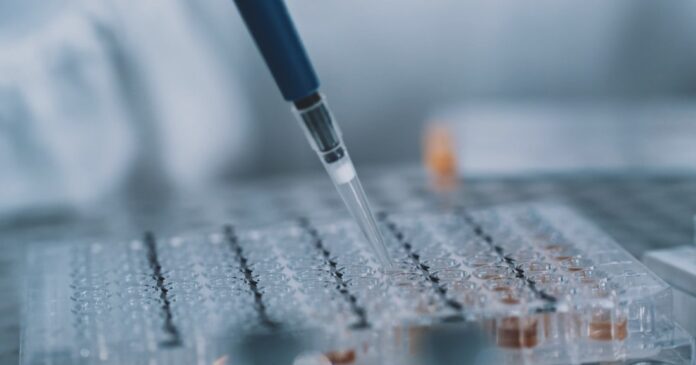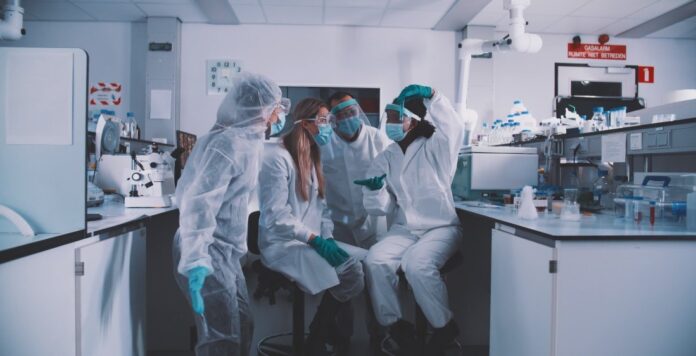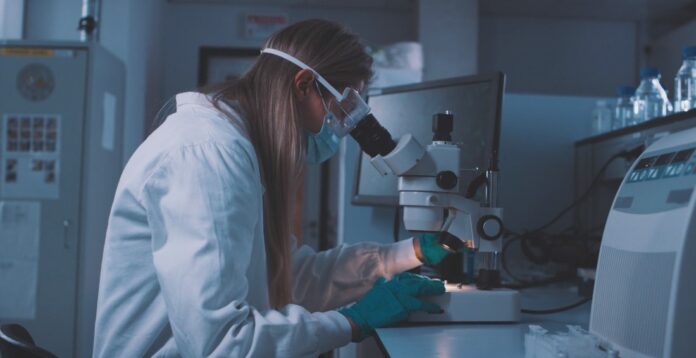Montreal, a city known for its rich cultural heritage and vibrant arts scene, is also making a name for itself as a hub for innovation in laboratory testing. The town, home to several world-class universities, research institutions, and healthcare facilities, has seen a surge in the development of new lab testing technologies and methodologies.
This has led to the establishing of a dynamic and innovative lab testing landscape, with several companies, such as Lilium Diagnostics, pioneering breakthroughs in this area.
Emerging Trends in Diagnostic Methods

The laboratory diagnostics field is witnessing a period of rapid change and innovation. New technologies and methodologies are being developed and adopted at an unprecedented rate, transforming how lab tests are performed and interpreted.
These emerging trends have significant implications for patient care, as they have the potential to improve the accuracy and speed of diagnoses, facilitate earlier intervention, and enable more personalized treatment strategies.
One such trend is the increasing use of automation in the lab. Automated lab tests are now used to perform various tasks, from routine blood tests to complex genetic analyses. These tests save time and resources and reduce the risk of human error, ensuring more accurate and reliable results.
Another emerging trend in lab diagnostics is the growing focus on molecular diagnostics. This involves using molecular biology techniques to detect and measure the presence of specific genes or proteins in a patient’s sample.
This can provide valuable information about the patient’s health status, disease risk, and response to treatment, enabling more personalized and effective care.
Montreal’s Role in Advancing Medical Research
Montreal has long been recognized as a leading center for medical research. The city is home to some of the world’s top universities and research institutions, which are actively engaged in groundbreaking research in various fields of medicine.
These institutions have significantly contributed to advancing medical knowledge and practice and have played a key role in shaping the city’s innovative lab testing landscape.
One area where Montreal has made particularly significant strides is in the field of personalized medicine. This involves tailoring medical treatment to the individual characteristics of each patient.
This approach requires a deep understanding of the patient’s genetic makeup, lifestyle, and environmental factors, which can be obtained through advanced lab tests.
In addition to research institutions, Montreal is also home to several innovative companies pushing the boundaries of lab testing. Companies like Lilium Diagnostics are developing new diagnostic methods and technologies that revolutionize how lab tests are conducted and interpreted.
These companies contribute to the advancement of medical research and create new opportunities for economic growth and job creation in the city.
Personalized Medicine and Lab Tests

Personalized medicine is rapidly evolving, reshaping how medical care is delivered. At the heart of this approach is using advanced lab tests better to understand the patient’s health status and disease risk.
These tests can provide valuable information about the patient’s genetic makeup, lifestyle, and environmental factors, enabling doctors to tailor treatment strategies to each patient’s individual needs.
One of the critical components of personalized medicine is genetic testing. This involves analyzing a patient’s DNA to detect genetic variants that may increase their risk of certain diseases. Genetic testing can also predict a patient’s response to certain drugs, enabling doctors to select the most effective and least harmful treatment options.
Another critical component of personalized medicine is biomarker testing. Biomarkers are biological molecules that can be detected in the body and used as indicators of health or disease.
By measuring the levels of specific biomarkers in a patient’s blood or other body fluids, doctors can gain insights into the patient’s health status, disease progression, and response to treatment.
Future Prospects for Lab Testing in Montreal

The future of lab testing in Montreal looks promising, with several exciting developments on the horizon. The city’s robust research infrastructure and vibrant startup ecosystem provide an ideal environment for developing and adopting new lab testing technologies and methodologies.
One area of potential growth is in the field of digital health. With the increasing use of digital technologies in healthcare, there is a growing demand for digital lab tests that can be conducted remotely and provide real-time results. This could open up new opportunities for companies in Montreal to develop innovative digital lab testing solutions.
Another area of potential growth is in the field of personalized medicine. As the demand for customized healthcare continues to grow, there will be an increasing need for advanced lab tests that can provide detailed information about a patient’s genetic makeup, lifestyle, and environmental factors. This could create new opportunities for companies in Montreal to develop and commercialize novel lab testing technologies and methodologies.
Expanding Access to Advanced Diagnostics
Montreal is not only innovating in lab testing technologies but also in expanding access to these advanced diagnostics. This involves making cutting-edge tests more available to a broader range of patients, including those in remote or underserved areas.
Telemedicine and mobile health initiatives play a crucial role in this, allowing patients to access specialized tests without the need to travel to major healthcare centers. This democratization of healthcare is critical in ensuring that the benefits of advanced diagnostics are available to all, regardless of location.
Collaboration and Partnerships
Another crucial aspect of Montreal’s lab testing landscape is the emphasis on collaboration and partnerships between academia, industry, and healthcare providers. These partnerships are vital for translating research findings into practical diagnostic tools and treatments.
They foster an environment where scientific discoveries are rapidly turned into innovative diagnostic tests and therapies, benefiting patients sooner. This collaborative spirit also attracts international talent and investment, further solidifying Montreal’s reputation as a leader in lab testing innovation.
Training and Education
As lab testing technologies evolve, there is an increasing need for skilled professionals who can operate these advanced systems and interpret their results. Montreal’s educational institutions are responding to this need by offering specialized training programs in laboratory sciences, molecular diagnostics, and personalized medicine.
These programs not only prepare the next generation of laboratory professionals but also ensure ongoing education for current practitioners, keeping them abreast of the latest developments in the field.
Sustainability and Ethical Considerations

Finally, as Montreal advances in lab testing, there is a growing focus on sustainability and ethical considerations. This includes developing environmentally friendly lab practices and addressing the ethical implications of genetic and molecular diagnostics.
Ensuring that new technologies are used responsibly and ethically is paramount, particularly in areas like genetic testing, where privacy and data security are major concerns.
In summary, Montreal’s lab testing landscape is characterized by its commitment to innovation, accessibility, collaboration, education, and ethical practice. These elements combine to create a robust and forward-looking environment that not only advances medical science but also ensures that these advancements are beneficial and accessible to all.
